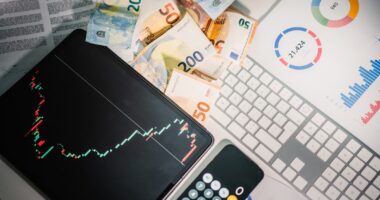Non-fungible tokens (NFTs) have emerged as a significant development in the digital art sphere, enabling artists to tokenize and sell their creations on blockchain platforms. This innovation has opened up new avenues for creators to monetize their work. However, the rise of NFTs has also been accompanied by an increase in fraudulent activities and scams within the cryptocurrency ecosystem.
One common form of NFT fraud involves the creation and sale of counterfeit digital artworks. Scammers may appropriate existing artwork or produce low-quality digital pieces, then market them as authentic NFTs. Some fraudsters employ deceptive marketing strategies, falsely attributing their NFTs to renowned artists.
These practices can result in buyers purchasing worthless digital tokens with no means of recovering their investments. Another prevalent scam in the NFT market is the manipulation of auction prices to artificially inflate artwork values. This can be accomplished through the use of multiple fake accounts to place bids on an NFT, creating a false impression of demand and driving up the price.
Once the NFT’s perceived value has been inflated, the scammer may sell it to unsuspecting buyers at an exorbitant price, leaving them with a digital token of little to no actual value. These fraudulent activities have raised concerns within the cryptocurrency community and underscored the importance of increased awareness and caution when participating in the NFT market.
Key Takeaways
- NFT scams are on the rise in the crypto world, with digital art fraud becoming a major concern for Ethereum and Bitcoin communities.
- Potential NFT scams can be spotted by recognizing red flags such as unrealistic promises, unverified creators, and high-pressure sales tactics.
- Safeguard your Ethereum and Bitcoin assets in the NFT market by using secure wallets, conducting thorough research, and being cautious of unsolicited offers.
- Due diligence is crucial in avoiding falling victim to fraudulent activity in the NFT market, so research NFT projects and artists before making any transactions.
- Securely buy, sell, and trade NFTs in the Ethereum and Bitcoin networks by using reputable platforms, enabling two-factor authentication, and being wary of phishing attempts.
- Take action against fraudulent digital art transactions by reporting suspected NFT scams to the appropriate authorities in the crypto community.
- Stay informed about the latest news and developments in the NFT market to avoid scams and fraudulent activity, and protect your investments in the crypto world.
Recognizing Red Flags: How to Spot Potential NFT Scams in the Ethereum and Bitcoin Communities
Lack of Transparency
When considering purchasing an NFT, it’s essential to be aware of certain warning signs that may indicate a potential scam. One major red flag is the lack of transparency regarding the artist and the artwork. If an NFT project fails to provide clear information about the artist behind the piece or the provenance of the artwork, it could be a sign of a potential scam. Buyers should always conduct thorough research on the artist and their work before making a purchase to ensure authenticity.
Unrealistic Promises and Guarantees
Another red flag to be mindful of is unrealistic promises or guarantees of high returns on investment. Some scammers may use misleading marketing tactics to lure in buyers with promises of quick profits from purchasing their NFTs. It’s important for buyers to approach such claims with skepticism and to carefully evaluate the legitimacy of the project before investing.
Community Presence and Uniqueness of NFTs
Buyers should also be cautious of projects that lack a strong community presence or have limited engagement on social media platforms. A lack of community involvement could indicate that the project is not genuine or that it lacks credibility within the crypto community. Furthermore, buyers should be wary of projects that have a high number of similar or identical NFTs for sale. This could be a sign that the artwork is not original or that it has been mass-produced to deceive buyers into purchasing fake tokens. It’s essential for buyers to carefully examine the uniqueness and authenticity of an NFT before making a purchase to avoid falling victim to fraudulent activity in the NFT market.
Protecting Your Investments: Tips for Safeguarding Your Ethereum and Bitcoin Assets in the NFT Market

Protecting your investments is paramount when participating in the NFT market in the Ethereum and Bitcoin communities. There are several tips that buyers can follow to safeguard their assets and minimize the risk of falling victim to NFT scams. One crucial tip is to only purchase NFTs from reputable marketplaces and platforms that have a proven track record of hosting legitimate art transactions.
Buyers should conduct thorough research on the marketplace and verify its credibility within the crypto community before making any purchases. Additionally, buyers should prioritize purchasing NFTs directly from established artists or creators with a strong reputation in the art world. By purchasing directly from the artist, buyers can ensure the authenticity and provenance of the artwork, reducing the risk of falling victim to fraudulent activity.
It’s also important for buyers to verify the artist’s identity and confirm their involvement in the creation of the NFT before making a purchase. Furthermore, buyers should consider seeking advice from experienced collectors or art professionals before making any significant investments in NFTs. Consulting with individuals who have expertise in the art market can provide valuable insights and guidance on how to navigate the NFT space safely.
By seeking advice from knowledgeable sources, buyers can gain a better understanding of potential risks and make informed decisions when purchasing NFTs. Moreover, buyers should exercise caution when participating in NFT auctions and be mindful of suspicious bidding activity that could indicate potential manipulation of prices. By staying vigilant and conducting thorough due diligence before making any purchases, buyers can protect their investments and minimize the risk of falling victim to NFT scams in the Ethereum and Bitcoin communities.
Due Diligence: Researching NFT Projects and Artists to Avoid Falling Victim to Fraudulent Activity
| Due Diligence Metrics | Description |
|---|---|
| Project Whitepaper | Review the project’s whitepaper to understand its goals, technology, and roadmap. |
| Team Background | Research the team members’ backgrounds and experience in the NFT space. |
| Community Engagement | Assess the level of community engagement and support for the project. |
| Artistic Portfolio | Examine the artist’s portfolio to gauge the quality and originality of their work. |
| Smart Contract Audit | Check if the project’s smart contract has been audited by reputable firms. |
Due diligence is essential for researching NFT projects and artists to avoid falling victim to fraudulent activity in the crypto world. Buyers should conduct thorough research on both the NFT project and the artist behind the artwork before making any purchases. One important aspect of due diligence is verifying the authenticity and provenance of the artwork by confirming its creation by the artist.
Buyers should seek out information about the artist’s previous work and their reputation within the art community to ensure that they are purchasing genuine NFTs. Additionally, buyers should carefully review the terms and conditions of an NFT project before participating in any transactions. It’s crucial for buyers to understand the rights and ownership associated with purchasing an NFT, as well as any potential resale restrictions or royalties that may apply.
By reviewing the project’s terms and conditions, buyers can gain a better understanding of their rights as NFT owners and avoid potential disputes or legal issues in the future. Furthermore, buyers should research the background and track record of the individuals or team behind an NFT project to assess their credibility and expertise in the crypto space. It’s important to verify that the project has a legitimate team with a proven track record of successful ventures and a strong presence within the crypto community.
By conducting thorough due diligence on both the project and its team, buyers can mitigate the risk of falling victim to fraudulent activity and make informed decisions when purchasing NFTs. Moreover, buyers should seek out independent reviews and feedback from other collectors or investors who have participated in transactions with the same NFT project or artist. By gathering insights from individuals who have firsthand experience with the project, buyers can gain valuable perspectives on potential risks and benefits associated with purchasing NFTs.
By conducting comprehensive due diligence, buyers can protect themselves from falling victim to fraudulent activity and make informed decisions when participating in the NFT market.
Seeking Security: Best Practices for Securely Buying, Selling, and Trading NFTs in the Ethereum and Bitcoin Networks
Seeking security is essential for securely buying, selling, and trading NFTs in the Ethereum and Bitcoin networks. There are several best practices that buyers can follow to ensure a secure and seamless experience when participating in NFT transactions. One crucial practice is to use secure and reputable wallets for storing and managing NFT assets.
Buyers should prioritize using hardware wallets or trusted software wallets that offer robust security features to protect their digital assets from potential threats. Additionally, buyers should exercise caution when sharing personal information or sensitive data during NFT transactions to avoid falling victim to phishing scams or identity theft. It’s important for buyers to verify the legitimacy of any requests for personal information and to only provide details to trusted and verified parties.
By being mindful of data security practices, buyers can minimize the risk of unauthorized access to their accounts or assets. Furthermore, buyers should consider using decentralized exchanges or marketplaces that offer enhanced security features, such as multi-factor authentication and encryption protocols, to protect against unauthorized access or fraudulent activity. By utilizing platforms with advanced security measures, buyers can reduce the risk of falling victim to hacking or unauthorized transactions when buying, selling, or trading NFTs.
Moreover, buyers should stay informed about potential security vulnerabilities or threats within the Ethereum and Bitcoin networks by following updates from reputable sources within the crypto community. By staying up-to-date on security best practices and emerging threats, buyers can proactively safeguard their assets and minimize the risk of falling victim to fraudulent activity when participating in NFT transactions.
Reporting Suspected NFT Scams: Taking Action Against Fraudulent Digital Art Transactions in the Crypto Community

Reporting Scams to Marketplaces and Platforms
If you suspect that you’ve fallen victim to an NFT scam or have encountered suspicious activity, it’s essential to report your concerns to the relevant marketplace or platform where the transaction took place. Provide detailed information about the fraudulent activity and any evidence that supports your claims. This step is crucial in preventing further fraudulent activity and protecting others from falling victim to similar schemes.
Reporting Scams to Regulatory Authorities and Consumer Protection Agencies
In addition to reporting scams to marketplaces and platforms, you should also consider reporting suspected scams to regulatory authorities or consumer protection agencies that oversee digital asset transactions within your jurisdiction. By doing so, you can contribute to efforts aimed at preventing future scams and protecting others from falling victim to fraudulent activity.
Raising Awareness and Seeking Legal Advice
Sharing your experiences with other members of the crypto community through social media platforms or online forums can help raise awareness about potential scams and educate others about common red flags and warning signs associated with NFT fraud. If you believe you’ve been defrauded by an NFT scam, consider seeking legal advice or assistance from professionals who specialize in digital asset transactions. They can provide guidance on potential recourse options available to victims of fraudulent activity and help you navigate any legal processes associated with reporting suspected scams.
Staying Informed: Keeping Up with the Latest News and Developments in the NFT Market to Avoid Scams and Fraudulent Activity
Staying informed is essential for keeping up with the latest news and developments in the NFT market to avoid scams and fraudulent activity in the crypto community. Buyers should prioritize staying informed about emerging trends, regulatory updates, and potential security threats within the Ethereum and Bitcoin networks by following reputable sources within the crypto community. One important practice is to stay updated on news related to potential scams or fraudulent activity within the NFT market by following updates from trusted news outlets or industry experts.
By staying informed about recent developments, buyers can gain valuable insights into common red flags associated with NFT scams and make informed decisions when participating in digital art transactions. Additionally, buyers should consider joining online communities or forums dedicated to discussing NFTs and digital art transactions to engage with other members of the crypto community and share insights about potential risks associated with purchasing NFTs. By participating in discussions with other collectors and investors, buyers can gain valuable perspectives on best practices for avoiding scams and protecting their assets within the NFT market.
Furthermore, buyers should stay updated on regulatory developments related to digital asset transactions within their jurisdiction by following updates from relevant authorities or industry organizations. By staying informed about potential regulatory changes, buyers can ensure compliance with legal requirements when participating in NFT transactions and minimize the risk of falling victim to fraudulent activity. Moreover, buyers should consider seeking advice from experienced collectors or professionals who specialize in digital art transactions to gain insights into best practices for navigating potential risks associated with purchasing NFTs.
By seeking guidance from knowledgeable sources, buyers can stay informed about emerging trends and developments within the NFT market and make informed decisions when participating in digital art transactions. In conclusion, understanding how NFT scams operate is crucial for protecting oneself from falling victim to fraudulent activity within the Ethereum and Bitcoin communities. By recognizing red flags associated with potential scams, conducting thorough due diligence before making any purchases, seeking security best practices for securely buying, selling, and trading NFTs, reporting suspected scams when encountered, and staying informed about latest news developments within the NFT market are all essential steps towards safeguarding one’s investments from fraudulent activity within this emerging space.
FAQs
What are NFTs?
NFTs, or non-fungible tokens, are digital assets that represent ownership or proof of authenticity of a unique item or piece of content, such as digital art, collectibles, or music, using blockchain technology.
What are some common NFT scams?
Common NFT scams include fake or plagiarized digital art, phishing scams, and fraudulent NFT marketplaces. Scammers may also create fake NFT projects or use misleading marketing tactics to deceive buyers.
How can I protect myself from NFT scams?
To protect yourself from NFT scams, it’s important to research the artist or creator, verify the authenticity of the NFT, use reputable NFT marketplaces, and be cautious of offers that seem too good to be true. Additionally, consider using secure wallets and conducting due diligence before making any purchases.
What should I do if I suspect an NFT scam?
If you suspect an NFT scam, report it to the relevant NFT marketplace or platform, and consider reaching out to the artist or creator to verify the authenticity of the NFT. Additionally, you can report the scam to the appropriate authorities or consumer protection agencies.





